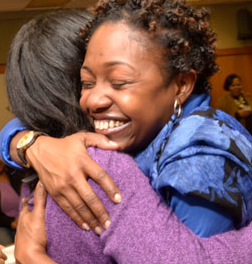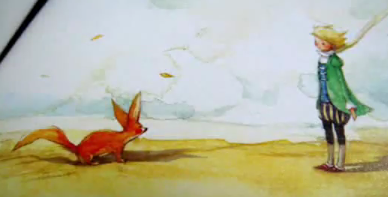 Maybe it’s happened to you before too…
Maybe it’s happened to you before too…
You look at your child who may sleeping, or being themselves, or doing something they love …and your heart fills with a rush of joy and good pleasure. This is quickly followed by dread.
“Maybe it’ll all be taken away,” you think.
Maybe something terrible is about to happen. Maybe things won’t work out. Fear.
Or perhaps this sort of dread will surface right after a big personal victory or good news.
It’s like that perfect moment of happiness has a gremlin that pops up and spits on it. For many of us, especially if we endured a bit of pain or disappointment, our Joy is followed by foreboding.
This strange death grip on joy is quite common. With a self-protection machete we slash down joy or happiness with contingency plans and preparation for the worst. Upcoming disappointment won’t catch us on our heals, we think.
It’s all about avoiding feeling vulnerable according to Brené Brown who talks about this in her book Daring Greatly. She’s done the research and says that those who’ve done regular preparation to avoid pain still aren’t prepared when disaster strikes. Instead they are devastated, just like the rest of us. But sadly, they have mortgaged away their joyful moments in on-the-spot while bracing for potential disappointment and pain.
So what can inoculate us from from short selling our joy?
It’s simple: In-the-moment gratitude.
Instead of waiting for the other shoe to drop, push aside the tormenting doubt, dread, or mistrust. Sideline the foreboding that steals that moment and latch onto to gratitude. Hold on with both hands. Gratitude sustains joy. It’s like a Defense Against the Dark Arts skill, says Brown. She’s right. It works.
It might go something like this, “Oh, my, we’re all picnicking and enjoying a wonderful time outside. No one’s fighting and everyone’s happy to be here. Yes, it might not last, but my how grateful I am in this very moment, this perfect beautiful moment. I’m going to let it soak into my bones. I’m breathing it in.”
Stay with it as long as you can. There is a guiding light in gratitude… and gremlins, as we know, are afraid of light.
The truth is that joy and sorrow are linked. They do a dance our whole lives, really. But, hope and resilience can win the day. That’s an important bit of useful knowledge to give our children, too. With some intention, we can live in the Joy.
Oh, and when the other shoe drops, use it as a planter.
(photo source)
Thank you for reading today. If you’d pass this article along to someone who needs it or out on the inter webs, I’d be grateful. You can feature it on your blog too. Just click on the Permissions Policy for details to stay legit.
I hope you’ll sign up for future posts in the sidebar! Have a joyful day sustained by gratitude today, friend.






